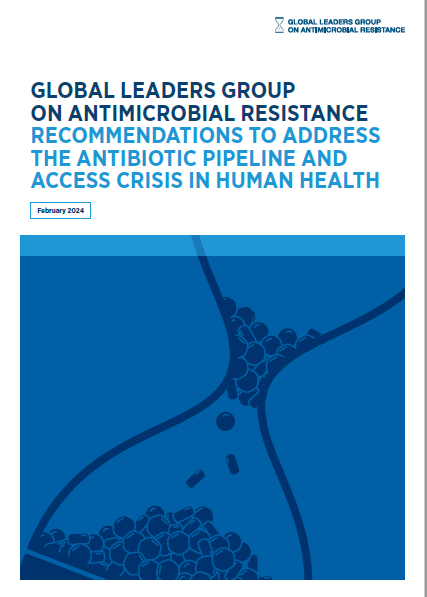GLG recommendations to address the antibiotic pipeline and access crisis in human health
20 February 2024
| Position paper

Overview
The pipeline and access crisis is delineated by the diminishing effectiveness of current antibiotics, limited global access to antibiotics (novel and generic), and an insufficiency in the research and development (R&D) pipeline for innovative antibiotics needed to treat drug-resistant infections. The lack of access to existing and innovative antibiotics is a contributor to the inappropriate use of antibiotics and the development of antimicrobial resistance. The GLG believes that antibiotics should be considered as global public goods, which should galvanize collective action to address the antibiotic pipeline and access crisis.WHO Team
One Health Global Leaders Group on Antimicrobial Resistance

